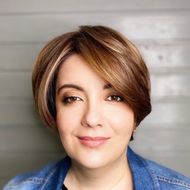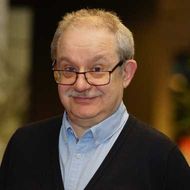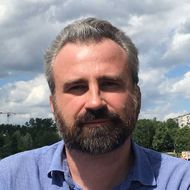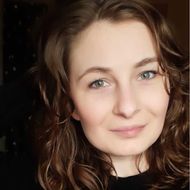- A
- A
- A
- ABC
- ABC
- ABC
- А
- А
- А
- А
- А
- HSE University
- Faculties
- Faculty of Social Sciences
- School of Sociology
- News
- At the HSE there is much more time to think, do research and to write
Address: 101000, Moscow,
11 Myasnitskaya Ulitsa.
Phone: 8 (495) 772-95-90 *12349
Email: izangieva@hse.ru
The School of Sociology aims to train future social analysts in sociological reasoning to address the needs of social life, business, politics, public administration, and the media. To this end, the school works to develop a close link between education and research, as well as application-oriented education, internationalization of research and education, and close networks with major employers on the labour market.
In press
Abashkin V., Abdrakhmanova G., Vishnevskiy K. et al.
M.: HSE, 2025.
Nastina E., Andiappan M., Miles A. et al.
Journal of Social Psychology. 2025. P. 1-14.
Aristova N., Chadeev V., Iakimova O.
In bk.: 2024 17th International Conference on Management of Large-Scale System Development (MLSD). IEEE, 2024. P. 1-4.
OSF, 2024
Address: 101000, Moscow,
11 Myasnitskaya Ulitsa.
Phone: 8 (495) 772-95-90 *12349
Email: izangieva@hse.ru

At the HSE there is much more time to think, do research and to write
Have you been interested in Russian culture before your invitation to the HSE?
I did my PhD in Magadan. I’m a geographer and Magadan was really interesting because geographically it’s isolated from the rest of the country. Flights to Magadan are very rare and expensive. It’s normal
for the majority of people to leave their cities and move where there are more jobs, where it’s cheaper. But you can’t actually move from Magadan even if you want. So academically it was very interesting.
Besides, the Russian North is a quite new and poorly known area of research in the West. Since my travelling there a famous British actor went around the world on his motorcycle and he was passing through Magadan. So quite few people in Britain have been in Magadan and even heard about this city.
Why did you choose the HSE?
First I knew some people who worked here in the HSE in sociology and management - I was working at a summer school with them. It was a great opportunity to come and to work in Moscow and do some research afterwards. Plus my proper professional interest lies in Russia and Russian culture, and I wanted to do my research here, to develop in this work, to make contacts. I first came to Russia in
1999. By the way, another reason for coming to the HSE was spending more time in Moscow. Looking how Moscow changes over a period of time – it’s one of my academic interests. I remember when I first
came to Moscow I was really worried about security. Moscow is totally different city now. I’ve done a lot of travelling before. I’ve lived in India, Australia, the USA. But anyway coming to Russia was a cultural
shock. I was impressed by the size of Moscow, the number of people. The way of life, working – everything is different here.
What do you consider to be your major achievements during your period of working in the HSE? What are you proud of?
I’ve published a book since I’ve been here on informal economies in Russia and Ukraine which is called ‘The role of informal economies in the post-Soviet world: the end of transition?’. I’ve started two new
areas of research, for example, on opposition, ways of protest in Russia, ideas of rejecting the state. It’s one area of research I’ve developed. This I couldn’t have done if I was in Birmingham. Because if I’m in Birmingham, it becomes very expensive, I can come here just only for a few weeks. It becomes quite difficult. Here I can live where I’m living, where I’m working. It really facilitates the research – just being here. The second area which we’ve got a grant for is the every-day life of migrants.
Besides the research work there is some teaching activity in the HSE. How can you describe your
teaching experience in the HSE?
The teaching is really interesting. But there's still a problem of getting students to take English language courses: both of the courses I teach have a relatively small number of listeners. One of these courses is very popular among American students because it's oriented a bit more on general education. But the thing I'm most proud of is that I teach in Russia, in Moscow. If you have students from Moscow and they are interested in what you’re telling them, they just get to know you. When someone says by the end of the course : «You make me think in some different way» – it is a great experience. I really love to teach “in a field”. We go to Strelka Red October factory with one of my courses and we do teaching actually there. I don't think any other course does, I like it, it’s also a great experience. But I have to say that Russian education system has lots of problems with the timing of lectures.
Two blocks of forty minutes – that is quite alright, but with four academic hours it's really hard to hold students’ attention. I also don't think the system of lectures and seminars is needed at master’s level. I think there should be much more reading, a large set of questions you discuss in a group, some presentations. I'm trying to do it with my students.
Furthermore, there’s too much teaching here in Russia, too many modules, which is not necessary, not proper. From September till June - it's a very long academic year. It's a problem for active academics, my
Russian colleagues here in the HSE, who want to make their research work as well as teaching. If you're teaching for that long period, summer comes and you think - I need holidays. What do you want from academics to be - you want them to be teachers or researchers? In a current system there's no way you can be both.
You’ve been here for 2 years, what are the main advantages and drawbacks of working at the HSE?
For me the main advantage of working here is time. There's much more time to do researches here than in Britain. Less administrative work, much more time to think, do research and to write.
In Britain you have long-lasting expectations of getting grants, a lot of checking, monitoring. Every seven years every department gets assessed. These processes are quite stressful. The disadvantage is the bureaucracy system itself, which is really needed to be thought through. It's not the criticism to the HSE itself, but to all Russian educational system. For example, I don't know what’s my teaching next year. It's quite difficult to plan. These things should be sorted earlier but all the teaching processes are quite slow. Despite asking many times, I still don't know what is happening. That's quite frustrating. The HSE is the most Western-looking universities in Russia. The system doesn't have to be so bureaucratic, so difficult to manage things. Imagine, if I want to go on a business trip - it's got to be signed by a lot of people, it's got to be approved by them. You come back - they need all your boarding passes, your tickets, everything. If any signature is wrong - everything should be done again.
In Britain you have much more freedom. If you need a business trip – you just have your credit card and you can do everything online. Many of my colleagues here feel that it's very frustrating. Another problem is the grants system - you've got a half of the budget at the beginning of your working process and another half of it at the end. But what can you do with these halves?
We don't have an access to Russian Federal Government fund. The HSE should push this question. The lack of access to research funding is a big disadvantage.
Is there something you would like to change in the HSE, given the chance?
I would like to rise up the research culture: making reading groups, kind of spaces for students to gather and to work. For example, a library. Libraries are not about books, they should be about spaces for
students to work, to communicate. It doesn't really exist in Russia yet.
In Russian universities interactive relations between students and teachers is quite a weak point. In Britain, for example, during your first year you have your own tutorial group. Six or seven people have
their own tutor and they see him every week. That gives a chance to improve scientific research component of studies. But I have to say things are changing and they will continue to be changing when new people come. The more of them come the more the system changes.
Text by Ruslan Sleptsov, HSE LooK
- About
- About
- Key Figures & Facts
- Sustainability at HSE University
- Faculties & Departments
- International Partnerships
- Faculty & Staff
- HSE Buildings
- Public Enquiries
- Studies
- Admissions
- Programme Catalogue
- Undergraduate
- Graduate
- Exchange Programmes
- Summer Schools
- Semester in Moscow
- Business Internship
-
https://elearning.hse.ru/en/mooc/
Massive Open Online Courses
-
https://www.hse.ru/en/visual/
HSE Site for the Visually Impaired
-
http://5top100.com/
Russian Academic Excellence Project 5-100
- © HSE University 1993–2025 Contacts Copyright Privacy Policy Site Map
- Edit



